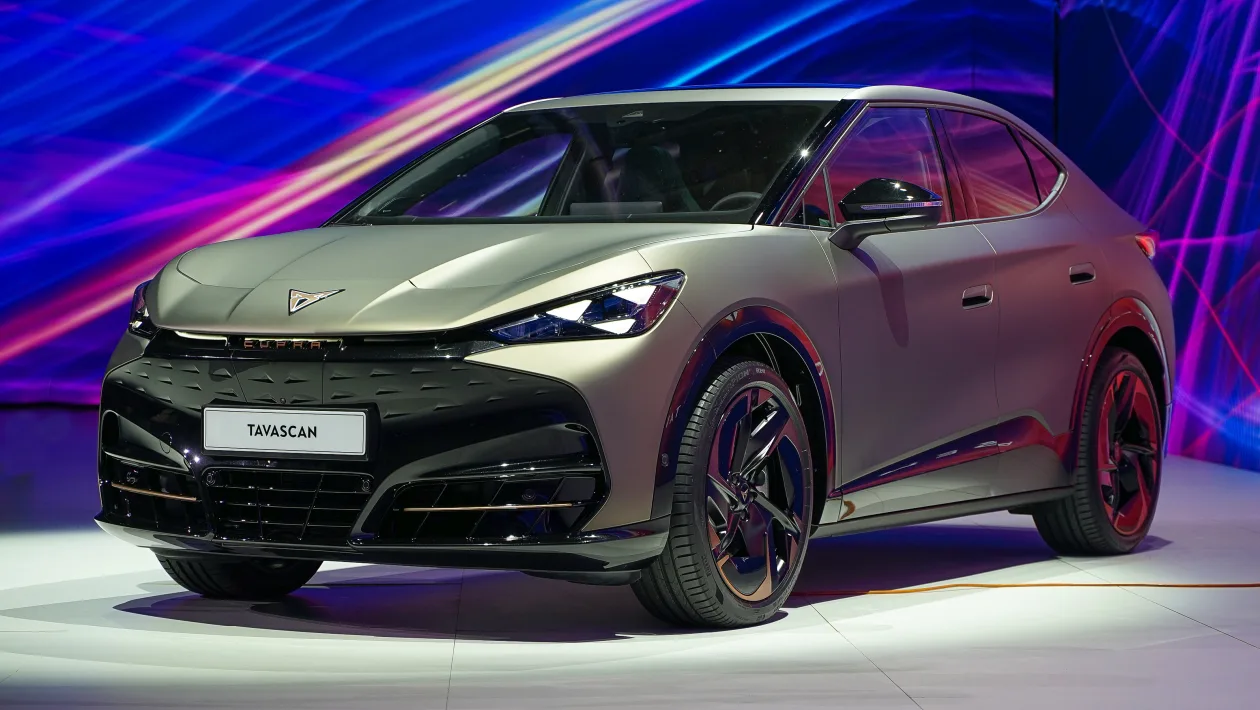Motorsport, including Formula E, will also inform the firm’s EVs, transferring technology and learnings both ways.
Cupra is reinforcing its positioning as a performance brand through commitment to motorsport – and in the case of EVs, transferring technology and learnings both ways.
Having won both eTouring World Cup titles with the Cupra Leon-based eRacer in 2021 and 2022, Cupra took the step into Formula E – an electric racing series with eight seasons already behind it and a much higher profile, thanks to the presence of major global car makers DS, Jaguar, Maserati, McLaren, Nissan and Porsche.
The Spanish firm endured a difficult debut, finishing last of the 11 teams with just six points-scoring finishes all season, but senior figures are nevertheless happy.
“We knew the difficulties of this year, and I think we’ve proved that steadily we’ve been improving during the season. We didn’t expect to be coming here and beat all these big sharks,” Cupra motorsport director Xavi Serra told Automotive Daily network partner Autocar at the season finale in London last week.
“We see Formula E as a long-term engagement,” added R&D chief Werner Tietz – the man who laid the foundation for Bentley’s electrification programme. He sees Formula E as an invaluable live laboratory for electric road cars.
“For me, the good thing is that we’re working a lot with recuperation,” he said. “This is what we have to transfer to the road cars. You might ask why we put drum brakes on [electric] road cars; it’s because most of the brake energy goes into recuperation. In Formula E races, [friction brakes] aren’t used [in search of maximum efficiency]. Recuperating all the brake energy is the future, and this is what we’re learning.
“Two of [Serra’s] guys are already in the team learning on the software side. This is very important for us. And we’re in contact now with my engine guys, exchanging information. This is really, really useful for us to know.”
Serra concurred: “It’s astonishing what we’re learning from here, because the [new Gen3 Formula E] car has 600kW of power in terms of recuperation. And we’re really feeling the battery and using this energy for racing. So it’s a real game-changer.”
Tietz believes that Formula E is now more relevant to the road than Formula 1, which uses hybrid powertrains, reasoning: “The challenge is the electric car technology, and especially what you can do with artificial intelligence on the software side in the future, how you can steer the car, while the car is learning for its whole life, and improving the performance of the car. This is what we only can learn in Formula E, because electric motorsport is always going to the limit, and then you learn everything you need for road cars.
“I expect a lot of steps in the next couple of years, because battery technology will develop rapidly. We will see in the next five to 10 years a big jump in technology in case of charging times and range. And then you can maybe start to think about longer races, then maybe also battery exchange for endurance races. So it will develop fast, and there are more jumps to expect than in conventional motorsport.”




